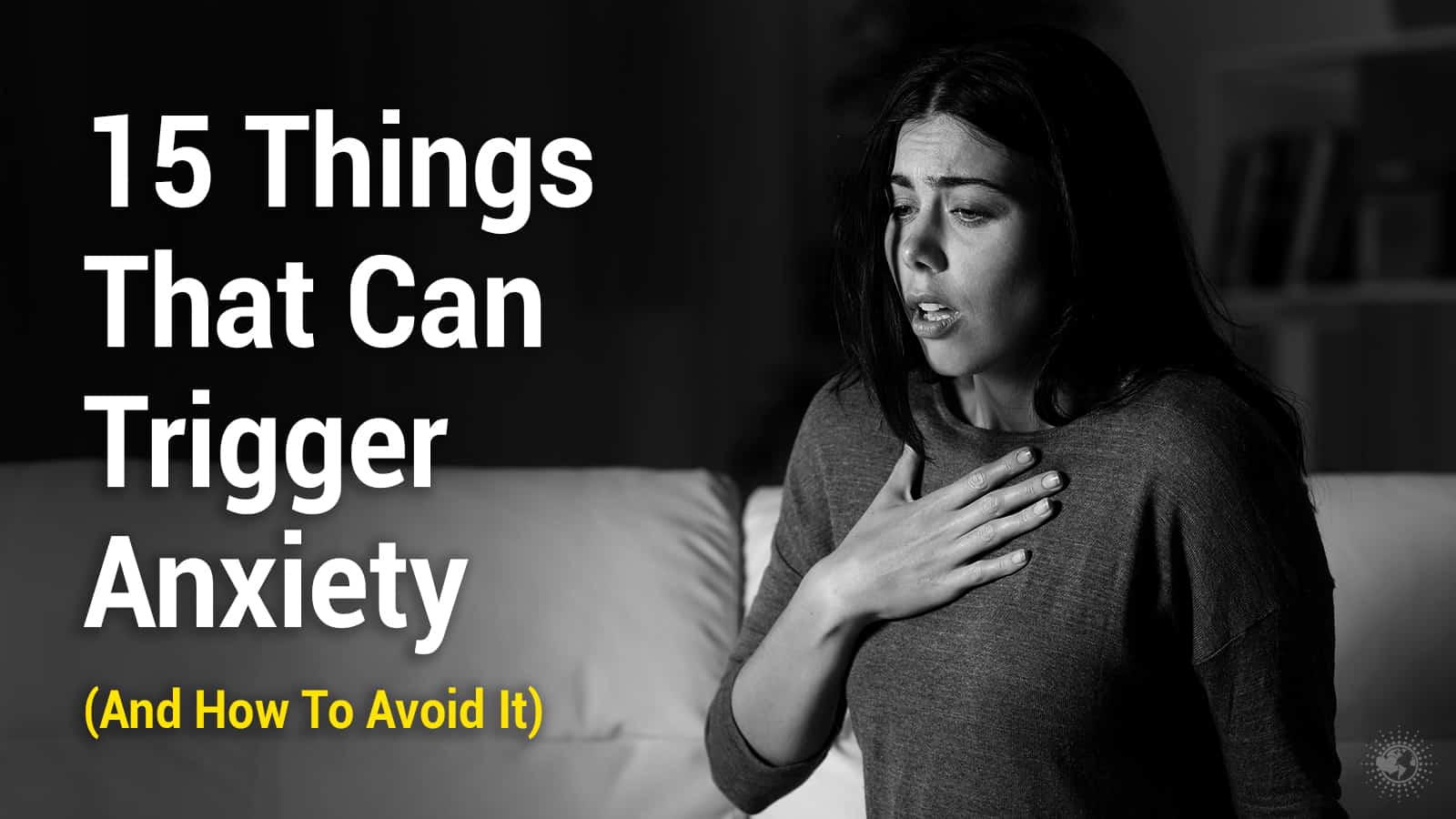Do you have the proper tools for anxiety management? Anxiety is one of the most common mental health disorders around. It’s estimated that more than 40 million adults suffer from this condition.
When your body is in a constant state of worry, you can feel tired, irritable, restless, and as your whole life is out of balance. As if all the mental signs weren’t bad enough, it’s also common for you to feel numerous physical symptoms. The time between when the symptoms appear, and you get an official diagnosis can be unsettling.
You may feel as if you have the flu or some other illness that is draining your resources. Your body and brain share a strong connection. When you feel your anxiety rising, it can cause digestive issues.
Then, the digestive issues can increase your anxiety because you know something is wrong and can’t figure out what is causing it. Many people don’t know what is causing the symptoms they’re experiencing. Society wants to blame everything else before looking to a mental health disorder for the truth.
Here are some red flags and strange sensations that come from an underlying anxiety condition and tips for managing them.
1. Stopping the Feeling of Impending Doom
You can have issues in your body that make you feel like you’re going to die. People who have a problem with constant angst often feel like there’s something wrong.
Being under constant stress can make you have headaches. Chronic headaches may make you think you have a brain tumor. The truth is that your issues are caused by muscle strain not cancer. The physical symptoms can be quite painful.
• Management Tip:
Remind yourself that this is anxiety and will pass. For those aching muscles, try a warm compress to help soothe away the pain.
2. Slowing a Racing Heartbeat
When you feel stress and angst, your body releases hormones that control the fight or flight response. Cortisol and adrenaline are two powerful hormones that help you stay safe. Once the anxiety passes, the flight or fight response will calm, and your heart will stop racing.
• Management Tip:
Learning mindful breathing and meditation can help to calm a racing heart and is a vital part of anxiety management.
3. What to Do With Sweating?
Why is it that when you get nervous you tend to sweat? It’s yet another one of the physical signs displayed from the overload of adrenaline and cortisol in the body. Some people will become drenched in sweat when they feel their nerves are in an uproar.
• Management Tip:
Thankfully, the unpleasant sensation will soon pass. Try using a cool cloth to help your body regulate its temperature. Placing it on the back of the neck can work wonders.
4. Settling Nausea and an Upset Stomach
When you have problems with anxiety, you become hypersensitive to every sensation you feel. You might be having hunger pangs from missing lunch or that second helping of spaghetti didn’t sit right with you. Your stomach can start churning when your anxiety is at peak levels.
• Management Tip:
The key is to counteract the overproduction of acid, which is likely caused by stress hormones. You can drink ginger ale or have some saltines to help the sensation pass quickly. Part of anxiety management is finding methods to calm digestive and other issues in the body.
5. Stopping Dizziness
Dizziness or being lightheaded is a common problem when someone is having an anxiety attack. A lack of oxygen causes most cases of lightheadedness due to hyperventilation.
When you are feeling pangs of anxiety, you start breathing faster than usual, and you’re not getting the proper amount of oxygen to your brain.
• Management Tip:
Breathing into a paper bag or using meditation can help to quickly restore oxygen levels to a normal range.
6. Counteracting the Feeling That You Will Faint
Along with dizziness and lightheadedness comes the feeling as if you’re going to pass out. You want to be mentally sound, but it’s hard to make sense of all these weird feelings.
Very few people pass out during a panic attack. Part of anxiety management is knowing the sensation will pass and develop good coping skills.
• Management Tip:
Find a safe place to sit or lay, and close your eyes. Turn a fan on to help circulate air, or put your head between you’re knees. It will be over before you know it.
7. Warming Yourself During Shaking or Chills
Shaking or having chills during times of anxiety is normal as the body is trying to regulate its temperature. It’s a fleeting physical symptom that doesn’t last long, but it’s just another way your body is trying to cope with what’s going on.
• Management Tip:
To manage this symptom, grab a throw and cover your body. You can help to regulate your temperature until the attack passes
8. Relax Your Breathing Difficulties
Having a panic attack can make you feel as if you can’t breathe. Your chest may feel heavy, and you may feel as if you are struggling to get air. Your airway is not shutting down, but it can certainly feel that way.
• Management Tip:
Keep an inhaler with you if you have problems breathing as it’s one of the best anxiety management tips. Also, breathing in a brown paper bag can help as well as going outside and inhaling fresh air.
9. Stopping Constipation or Diarrhea
Have you ever received terrible news and instantly felt sick with diarrhea? The digestive tract is sensitive to all the extra hormones floating around your body, and it will respond accordingly.
• Management Tip:
Chronic issues with these digestive problems can affect your overall well-being. To manage this, control your diet and use herbal remedies like extra fiber to regulate your bowels. You may also need antidiarrheal medications to leave your home.
10. Handling Chest Pains
One of the most troubling sensations during an anxiety overload is chest pains. It’s one of the red flags for a heart attack, so it’s hard to know if it’s coming from your mind or heart.
If the sensation doesn’t pass in a few minutes, you need to see a doctor and be evaluated for heart trouble. It’s one of those things where you don’t want to take a chance.
• Management Tip:
If it’s panic, usually mindful breathing will help to release the tension in your chest area. Don’t linger because it could be a heart attack.
11. Stopping the Feelings that You’re Going Crazy
Did you know that if you were going to have a battle with psychosis and take a mental vacation that you don’t usually have thoughts about it first? If you have feelings that you’re not mentally sound and about to go crazy, you can almost count on it being anxiety-based. Psychosis isn’t often a condition that gives you advanced warning.
• Management Tip:
Remind yourself that this is anxiety and it will soon pass. Use self-talk to get through this. Grounding techniques can also help to restore a sound feeling
12. Dealing with Dissociation
Some people believe that their body gives them little warnings that they’re about to have an anxiety issue. One of those physical signs is disassociation. People who have dissociative tendencies often feel as if they’re losing touch with reality or time.
• Management Tip:
To handle this symptom, you need to make mental notes of things around you. Say out loud what you see, smell, and things of this nature. Remind yourself that your okay and this feeling will be over soon.
13. Stopping the Irritability or Agitation
During times of high anxiety, you can become quite irritable or moody. Though it’s not one of the most common signs when your anxiety is peaking, you may feel out of control and like you’re mad at the world.
• Management Tip:
To control agitation when you feel angst, you need effective anxiety management techniques to keep from alienating those around you. Take a walk or close yourself into a safe space until you can be around others without being offensive.
14. Countering the Need to be in Constant Motion
Part of the fight or flight sensation makes you feel like you need to move or go. Some people run outside when they have a panic attack, feeling that they need to get out of the house.
• Management Tip:
Grounding techniques can help you feel safe. This instinct could protect you in imminent danger, but the threat is exaggerated when anxiety occurs. If you feel like you need to run, go outside and practice mindful breathing to calm down.
15. Dealing with Derealization
When your anxiety is getting ready to peak, things may look strange and like you’re in a cartoon world. If you look around and see that the room looks off and odd, then you know a panic attack is coming as derealization is a warning sign.
• Management Tip:
One of the best anxiety management tips for this is grounding. Remind yourself of things you see, objects you can touch, and where you are. Vocalize to yourself that this is your anxiety and you’re not going crazy.
Final Tips on Embracing These Effective Anxiety Management Strategies
Anxiety rocks your sense of well-being. When you first start having these attacks you don’t have effective coping skills. The severity of the symptoms can send you into a tailspin.
However, after you experience a few bouts of panic, you will learn effective anxiety management skills. The best anxiety management methods include grounding, meditation, mindful breathing, self-talk, or calling a trusted support person.
With your new mindset, you can and will learn how to deal with this situation, and thankfully, anxiety is very treatable.
















 Community
Community

